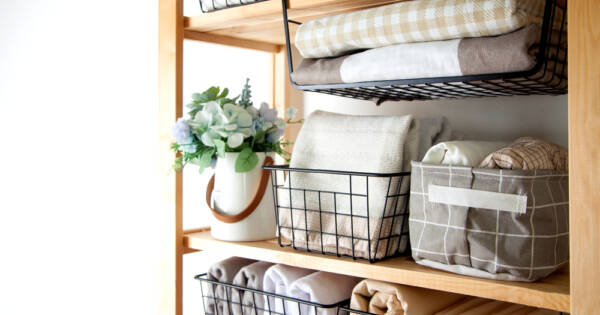In an increasingly aging population and with more individuals living in multi-story homes, the demand for home elevators has been steadily rising. Not only do they offer a level of convenience, but they also play a significant role in improving accessibility and enhancing the overall value of a property. Whether you’re looking to enhance mobility within your home or future-proof your living space, installing a home elevator can be a worthwhile investment.
The Role of Home Elevators in Accessibility
Home elevators have become an essential solution for improving accessibility, particularly in homes with multiple floors. For individuals with mobility challenges, whether due to aging, injury, or disability, navigating stairs can become a daunting task. Elevators can help remove this barrier, making the home safer and more comfortable to live in.
In multi-story homes, a home elevator can create a seamless connection between floors, eliminating the need to climb stairs. For people who use wheelchairs or walkers, elevators ensure easier movement between levels, enabling them to maintain independence. Moreover, home elevators are often customizable to suit a variety of needs, offering options such as larger cabins for more space or smooth, non-slip floors for extra safety.
For families, installing a home elevator can also ensure that all members, regardless of age or ability, can access every part of the house comfortably. While adding a home elevator might be most common for seniors or those with limited mobility, many families are now installing them proactively to accommodate future needs.
How Home Elevators Contribute to Property Value
Beyond their practical applications for accessibility, home elevators can significantly increase a property’s market appeal and overall value. In today’s real estate market, potential buyers are often looking for homes that offer convenience, comfort, and long-term functionality. A home elevator can be a game-changer in attracting buyers who value these qualities.
In addition to improving accessibility, a home elevator can make a home more desirable by offering a luxurious and modern feature. Elevators add a level of sophistication to a property that can set it apart from others in the neighborhood. In high-end real estate markets, where features like expansive floor plans and luxury amenities are highly sought after, a home elevator can be an attractive selling point.
Furthermore, installing a home elevator could increase the resale value of a property by future-proofing it for buyers who may have concerns about aging in place. Homeowners who anticipate the need for an elevator in the coming years might find that adding one now increases the home’s appeal to a broader audience.
Factors That Influence the Cost of Installing a Home Elevator
Before installing a home elevator, it’s important to understand the factors that can influence the total cost of the project. While the price can vary significantly depending on the specifics, several key considerations play a role.
- Type of elevator: There are different types of home elevators, including hydraulic, pneumatic, and traction elevators. Hydraulic elevators tend to be more expensive, but they offer smoother operation and are often better suited for homes with multiple stories. Pneumatic elevators are more affordable and have a more compact design, but they may not be suitable for larger homes.
- Customization: The level of customization you choose can affect the cost. For example, a custom cabin design with luxury finishes will cost more than a standard design. Similarly, features such as larger doors, advanced control systems, and unique materials will increase the price.
- Installation complexity: The complexity of the installation can also impact the price. For instance, homes that do not have a pre-existing shaft or space for an elevator may require significant modifications, which can increase the overall cost. Existing homes may require more work to ensure the elevator is installed correctly and safely, particularly if there are structural considerations to account for.
- Brand and manufacturer: Different brands of elevators come with varying price points, with some premium brands offering higher-end features and finishes. It’s important to choose a reputable brand that balances affordability and reliability.
Though installing a home elevator can be a substantial investment, homeowners often find the long-term benefits, including enhanced mobility and increased property value, to be well worth the cost.
The Long-Term Benefits of Installing a Home Elevator
The benefits of installing a home elevator extend beyond just improved accessibility and a potential increase in property value. One significant advantage is the long-term comfort and independence it can provide to homeowners. As individuals age or face health challenges, an elevator can serve as a vital tool for maintaining a high quality of life by ensuring that all parts of the home remain easily accessible.
For individuals recovering from surgery or injury, elevators can also offer a way to move between floors without the physical strain of climbing stairs. Similarly, for families with young children, an elevator can simplify transporting strollers, groceries, or other heavy items between floors.
Another important consideration is the potential to lower the risk of falls and accidents in the home. For seniors, particularly, falling down stairs is a major concern, and home elevators can offer peace of mind by minimizing the likelihood of such accidents.
Learn More Today!
Incorporating a home elevator into your property can transform both its functionality and its marketability. While home elevators are primarily known for improving accessibility, their ability to enhance a home’s value and appeal is undeniable. They offer a valuable solution for individuals with mobility challenges and provide a long-term investment that may make your home more attractive to potential buyers.
When considering the installation of a home elevator, it’s important to weigh factors such as cost, customization, and future needs. Ultimately, a well-chosen elevator system can add convenience, improve safety, and increase your property’s worth, making it a worthwhile consideration for homeowners looking to upgrade their living spaces.





